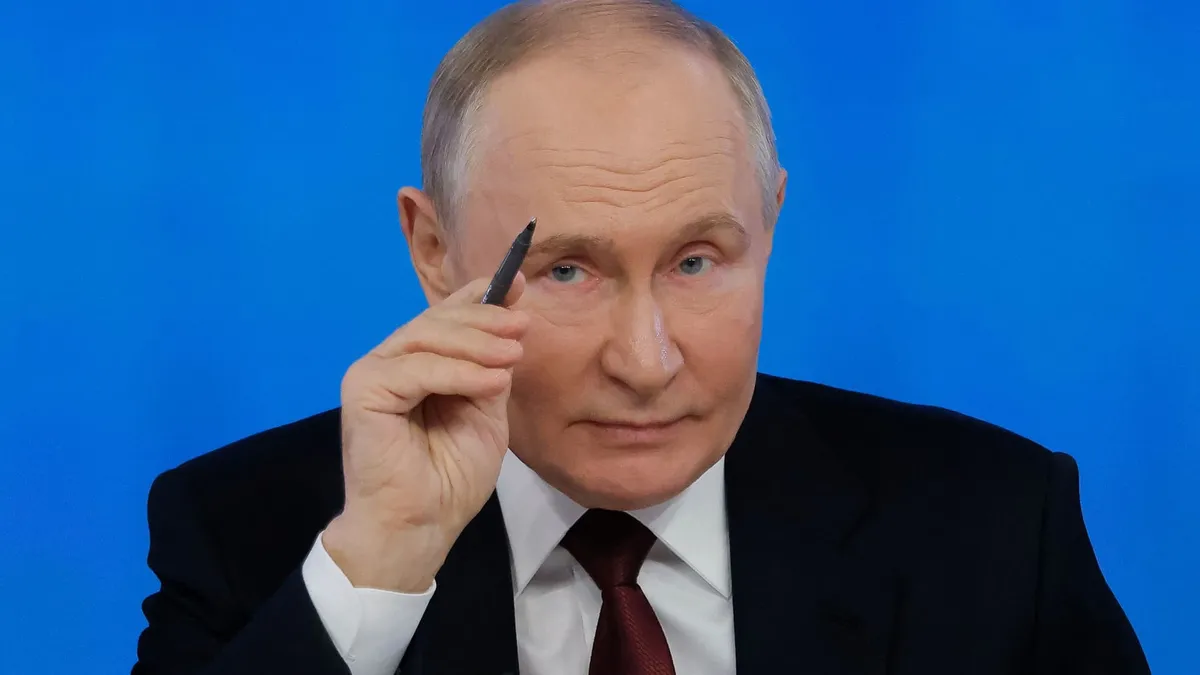
U.S. negotiators are currently in Moscow for critical discussions regarding a potential ceasefire in the ongoing Ukraine war. The talks, which took place on Thursday, have raised questions about Russia's willingness to accept the terms of a temporary truce that was developed without its input. The White House has proposed a 30-day ceasefire agreement, which officials assert will serve as a litmus test for the Kremlin's commitment to ending hostilities against Ukraine.
During a press briefing on Wednesday, U.S. Secretary of State Marco Rubio emphasized that the next move lies with Russia, following a ceasefire proposal he and Ukrainian officials crafted earlier in the week. Concurrently, U.S. President Donald Trump warned that failing to agree to a truce could have dire financial consequences for Russia, hinting at the possibility of increased sanctions should Russia not comply.
Despite the U.S. push for a ceasefire, the atmosphere in Moscow before the negotiations was less than optimistic. Russian Presidential Aide Yuri Ushakov declined to confirm whether Russia would reject Trump's ceasefire proposal, suggesting that a truce could allow Ukraine to strengthen its military position. Ushakov stated, "This is nothing else than a temporary respite for the Ukrainian military, nothing more," asserting that Russia continues to seek a long-term peaceful settlement that aligns with its national interests.
The proposed ceasefire deal outlines that all military operations would cease, with the possibility of extending the agreement beyond the initial 30 days upon mutual consent. Additionally, the proposal includes provisions for the exchange of prisoners of war, the release of civilian detainees, and the return of Ukrainian children who have been forcibly transferred to Russia. The U.S. has also committed to lifting its pause on sharing intelligence and military aid to Ukraine.
Russia has made its stance clear regarding future peace negotiations, stating it will not permit the deployment of foreign troops or the establishment of foreign military bases in Ukraine. President Vladimir Putin has remained silent on the ceasefire proposal, although he recently visited the partially occupied Kursk region, showcasing a show of strength amid ongoing military operations. Observers see this as a demonstration of Russia's determination to reclaim control in eastern Ukraine.
Experts are divided on the likelihood of Russia agreeing to the ceasefire terms. Andrius Tursa, a Central and Eastern Europe Advisor at Teneo, remarked that it may be challenging for Russia to navigate this situation without appearing uncooperative. Analysts also believe that if Putin does not agree to the ceasefire, he risks being perceived as the aggressor, potentially incurring the displeasure of Trump.
Volodymyr Dubovyk, an academic at the Center for European Policy Analysis (CEPA), described the U.S.-Ukrainian meeting as a potential breakthrough, though the outcomes remain uncertain. The central concern is how Moscow will respond to the proposal, with some suggesting that Russia may feign interest in peace while maintaining its aggressive posture.
Sam Greene, a Russia expert at CEPA, indicated that immediate acceptance of the ceasefire by Russia is unlikely. This potential refusal could lead to frustration within the White House, possibly resulting in renewed calls for concessions from Ukraine. Greene urged European nations to act swiftly to bolster Ukraine’s capabilities, particularly in terms of intelligence sharing and air defense, to protect against both Russian aggression and American inconsistencies.